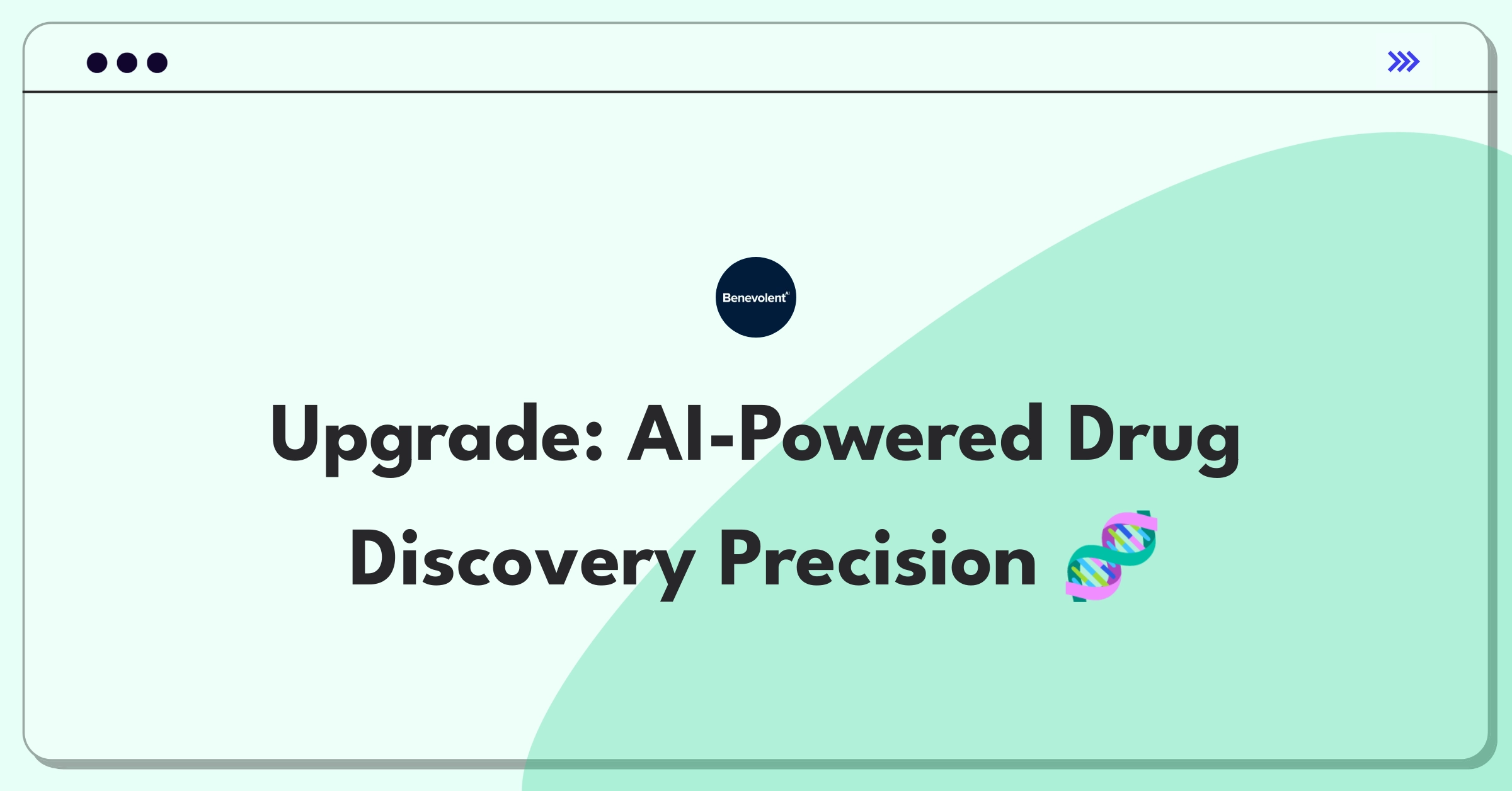Introduction
Enhancing the accuracy of Benevolent AI's drug discovery predictions is a critical challenge that could revolutionize the pharmaceutical industry. This improvement could lead to faster drug development, reduced costs, and ultimately, better patient outcomes. I'll approach this problem by examining user segments, analyzing pain points, generating solutions, and proposing metrics for success.
Step 1
Clarifying Questions
Why it matters: This helps us establish a baseline and determine the scale of improvement needed. Expected answer: Current accuracy is around 70%, while industry leaders are at 80-85%. Impact on approach: If we're significantly behind, we might need to focus on fundamental algorithm improvements. If we're close, we might prioritize incremental enhancements.
Why it matters: Understanding the user workflow helps us identify the most impactful areas for improvement. Expected answer: Predictions are primarily used in early-stage target identification and lead optimization. Impact on approach: This would help us focus our efforts on the most critical stages of the drug discovery pipeline.
Why it matters: Data quality and quantity are crucial for AI accuracy. Expected answer: We have access to public databases and some proprietary data, but face challenges with data standardization and completeness. Impact on approach: This might lead us to prioritize data acquisition and preprocessing improvements.
Why it matters: This helps us align our solution with the company's strategic goals. Expected answer: We're aiming to become leaders in predicting efficacy for rare diseases and personalized medicine. Impact on approach: We might tailor our accuracy improvements to these specific areas rather than a general approach.
Subscribe to access the full answer
Monthly Plan
The perfect plan for PMs who are in the final leg of their interview preparation
$99 /month
- Access to 8,000+ PM Questions
- 10 AI resume reviews credits
- Access to company guides
- Basic email support
- Access to community Q&A
Yearly Plan
The ultimate plan for aspiring PMs, SPMs and those preparing for big-tech
$99 $33 /month
- Everything in monthly plan
- Priority queue for AI resume review
- Monthly/Weekly newsletters
- Access to premium features
- Priority response to requested question


.png)